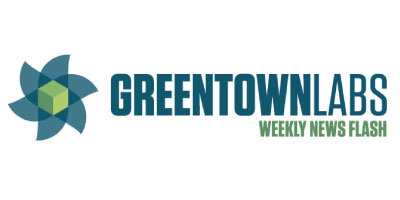
Over the last decade, the usage of clean energy has increased dramatically due to tremendous technological improvements, increased awareness of climate challenges and common commitment to lowering emissions. Progress in the United States has been widely publicized, but it is important to recognize the remarkable achievements of countries around the world. This week, we take a look at how the international community is fighting climate change and global achievements in clean energy.
What news have you been reading this week? Share with us @GreentownLabs!
Fortune– Germany’s High-Priced Energy Revolution
- Germany has undertaken a massive investment in clean energy. Through subsidies and other government programs, the amount power generated from renewables has dramatically increased over the last decade. Despite the amount of capital required to facilitate this movement, the nation believes the initial investments pay off in the long run. Germany is showing the world that green energy can become standardized through commitment.
“In doing that, Germany has demolished one of the most fundamental reservations about alternative energy: that wind and solar power are too flaky to be relied on.”
CNBC– UK emissions have fallen and energy bills haven’t risen, says new report
-
Promising news came out of the UK this week. Over the last eight years, emissions have been significantly reduced, while energy prices have simultaneously dropped. The progress can be attributed to the Climate Change Act passed in 2008. While there is still room for improvement, the report indicates clean energy can be implemented without economic pitfalls.
“This report shows we can tackle climate change and have lower energy bills – that’s a massive win-win for consumers and our environment.”
Forbes– These Are 2 Crazily Innovative Cleantech Solutions Helping Farmers In The Philippines
-
The Philippines has a massive farming industry, primarily fueled by non-renewable energies. Many rural farmers also rely on polluting energy in their homes. Two wildly creative clean tech startups are using the nations natural resources to provide clean energy to the nations farmers at work and at home. The brilliant solutions will be cost effective, locally sourced and cleaner than previous practices.
“It’s cleaner, it’s cheaper and it burns longer.”
Renewable Energy World– Commercial Operation Begins at 5-MW Binary Geothermal Plant in Japan
-
The nation of Japan is taking on one of the largest geothermal projects to date. The implementation of a 5mW geothermal facility will provide healthier energy to much of the country. Japan accounts for 10% of the world’s geothermal capabilities and is clearly dedicated to harnessing it.
CleanTechnia– Dutch Solar Bike Path SolaRoad Successful & Expanding
-
The Netherlands is an international leader in clean transportation. Anyone traveling through the country will notice the substantial amount of citizens using bikes. In an effort to further their green initiative, The Netherlands is creatively engineering a long stretch of bike paths to be able to generate solar electricity.
“As the rate of innovation is high, and public enthusiasm big, we shouldn’t be surprised to see more SolaRoads in the coming years, possibly of much larger scales than now deemed feasible.”
Bloomberg– Solar Power May Get Boost From Africa’s Biggest Oil Exporter
-
Nigeria is the largest exporter of oil in Africa but the nation is beginning to turn its focus towards solar. The Nigerian Government is in talks to add $30 million of investment into solar energy in the upcoming fiscal year. The primary focus of the policy is to reduce the amount of diesel generators in off-grid regions.
“It just gives you an idea of how the government sees solar as part of the total energy mix.”
GreenBiz– Could ‘pay-as-you-go’ solar electrify rural Africa?
- One detractor from solar and wind energy is the hefty initial investment required. In many rural African, installing solar panels may not be financially viable for individuals. However, innovative pricing models are combatting this problem. Electricity companies are implementing “pay as you go solar” which would allow citizens to participate in the clean energy movement without being burdened by expensive installation costs.
“Through this model, companies can minimize the cost of collections by automating the receipt of payments, while remote rural customers get immediate access to basic electricity without having to take out a loan.”


